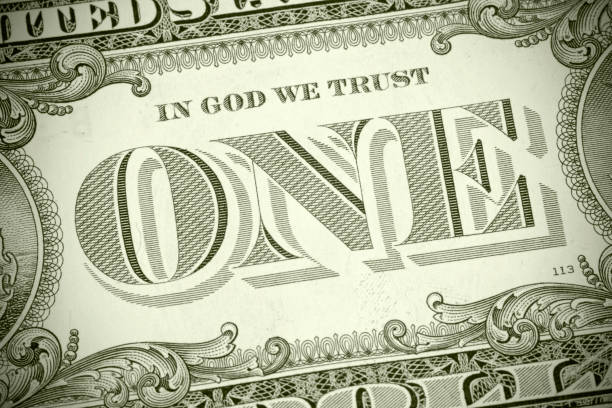On the Now/Here website, we have a meditation by a writer who has worked on matters of Faith and gives us some thoughts on the subject.
It is difficult to say what 'real' money is or distinguish between money and God. In a world where earning a lot of money and becoming rich are considered blessings from God, the question of how to earn more money and the question of how to live a gospel life become ambiguous 'in practice'. In such a world, wealth is often perceived as God's blessing and poverty as God's curse.
Let's be honest. Regardless of the reason and situation, aren't we more tempted by money and drawn to money than to God or the gospel? Doesn't money show us more specific and direct rewards than the seemingly nonexistent God or the inconvenient gospel of Jesus? The life of cash seems to promise a more abundant life than the life of God.
If I earn more money, I can live a more gospel-like life. If I earn more than I do now, I can support various organizations and treat my friends to a big meal. Money doesn't betray me. As I get older, I need to prepare for old age. I need to take care of my health. To avoid dying alone, I need to make friends, I need to spend a lot of money.
Still, since I'm a believer, I need a 'spirituality' for my mental dignity. Spirituality is a word that seems to have something but it's not easy to grasp. Is this not why we often hear the phrase mysticism here and there? When I say mysticism, doesn't it stimulate curiosity and make it seem like there's something important involved?
Defining spirituality is difficult but can fill something that money can't. However, if you have enough money, you don't necessarily need to seek spirituality with too much difficulty. If you have enough money, you seem to be able to get God. Money is already the gospel and God. It is no exaggeration to say that our world is occupied by money. In fact, hasn't it become a world that needs money more than God? Our attitude toward money and our view of money also tell us what kind of God we believe in.
In practice, the gospel of Jesus may be nothing more than ornaments often discarded by believers. The gospel demands life, and money tempts life. Put simply, the gospel of today's society—we should earn more money, save it, prepare for the present and future, build a healthy body, cultivate healthy hobbies, and broaden and deepen our relationships with others. It may have originated from our unstable socioeconomic structure and existential anxiety, but it doesn't seem that believers understand or especially present the gospel as received.
Whether believers or non-believers, we live lives mortgaged to money. I think that money, health, and a non-lonely existence—these three things—are the essence of the 'gospel' that many people living in South Korea today can affirm. It is the idolization of money, the flesh, and of relationships. It is the victory of Mammon. It seems that believers are serving two masters: God and money. We say that we believe in Jesus Christ and God, but in reality, we may be living a life that is completely unrelated to or contrary to the teachings of Jesus.
"He commanded them to take nothing with them for their journey except a staff: no bread, no bag, no money in their belts, but only sandals, and no two tunics." (Mark 6:8-9) These are the words Jesus spoke when he sent out the twelve disciples. These words taught the disciples how to live in the world. Perhaps the disciples at the time had to take these words literally. Of course, we should not judge the times of Jesus and our times as equivalent, but the attitudes, orientations, and eschatological outlook contained in these words are worth pondering today as believers. We live in the world, but we inevitably have to leave the world. That is why the spirituality of poverty can be beautiful, but at the same time, it can be painful.
There is a similar saying in the early church document "Didache - Teaching of the Twelve Apostles" that would be acceptable even if it were included in the Christian scriptures. "If he asks for money, he is a false prophet." (Didache 11) It is a concise saying. It means that an apostle who asks for money is a fake.
When I was young, I believed these words and messages and lived without worrying about tomorrow, but today has come. I am old. But what is this anxiety that suddenly comes to me from time to time? If I had enough money, would I have lived a life that followed the gospel of Jesus more? Had I lived in more poverty, would my life have been more gospel-like? Can this tension between money and the gospel be resolved?

No comments:
Post a Comment